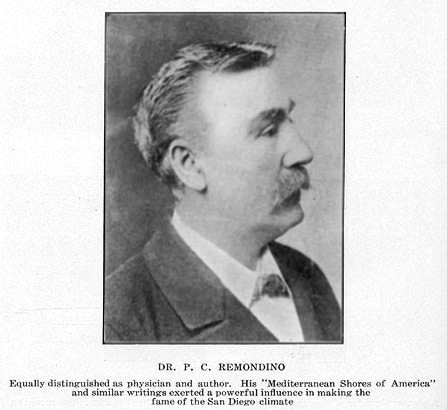H I S T O R Y
OF
CIRCUMCISION
FROM THE EARLIEST TIMES TO THE PRESENT
MORAL & PHYSICAL REASONS FOR ITS PERFORMANCE
WITH A
HISTORY OF EUNUCHISM, HERMAPHRODITISM, ETC., AND
OF THE DIFFERENT OPERATIONS PRACTISED
UPON THE PREPUCE
BY P.C. REMONDINO M.D.
(JEFFERSON)
CHAPTER XVIII.
THE PREPUCE AS AN OUTLAW, AND ITS EFFECTS ON THE GLANS.
RICORD has well termed this appendage to civilized man "a useless bit of flesh." Times were, however, when -- man living in a wild state,
and when in imitation of some of our near relatives with tails and
hairy bodies; when he still found locomotion on all-fours handier than
on his two feet; when in pursuit of either the juicy grasshopper or
other small game, or of the female of his own species to gratify his
lust, or in the frantic rush to escape the clutches, fangs, or claws of
a pursuing enemy, he was obliged to fly and leap over thorny briars and
bramble-bushes or hornets' nests, or plunge through swamps alive with
blood-sucking insects and leeches -- Ricord's definition would certainly have been inapplicable. In those days, but
for the protecting double fold of the preputial envelope that protected
it from the thorns and cutting grasses, the coarse bark of trees, or
the stings and bites of insects, the glans penis of primitive
man would have often looked like the head of the proverbially
duel-disfigured German university student, or the Bacchus-worshiping
nose of a jolly British Boniface [innkeeper]. So that in those days, unless primitive man was intended to have an organ that resembled a battle-scarred Roman legionary, a prepuce was an absolute necessity.
With improvement in man's condition
and his gradual evolution into a higher sphere, the assumption of the
erect posture, and the great stride in civilization that orginated the
invention of the manufacture of the perineal band [thong between the legs], which not only protected the glans in its thorny passage through life, but also acted like a protecting ægis [shield] to the scrotum and its contents, the prepuce became a superfluity; not only a superfluity, but, now that its natural office had been replaced by the perineal cloth, it actually began to be a nuisance,
as its former free contact with the air had retained it in a state of
vigorous and disease-resisting health which was now fast departing. As
Montesquieu observes, in the causes that led to the decline and fall of
the Roman Empire, those seasons of trials, tribulations, and struggle
for existence are those of health and progress and healthy life, and
the periods of luxury and idleness are those of degeneracy and decay.
So with the prepuce, the luxury and idleness, voluptuousness and
consequent feasting incident to its being supplanted in its original
functions by the perineal cloth, which left it thenceforth unemployed,
led it in the pathway of disease and death. This first innovation in
civilization was to the prepuce the beginning of its decay and fall.
Like Belshazzar in his great banquet-hall in ancient Babylon, the
prepuce might have read the hand-writing on the wall, "Mene, Mene, Tekel, Upharsin" [interpreted as "Thou art weighed in the balance and found wanting"]
and foreseen the gory end that awaited it Like to other human affairs,
however, even in his fallen estate a kind word can be said for the
prepuce. Puzey, of Liverpool, has found it of extreme value, and even
unequaled by any other part of the body, for furnishing skin-grafts,81
these grafts showing a vitality that is simply phenomenal, considering
the laxity of its tissues and its seemingly adipose character. There is
no doubt, however, that for skin-transplanting there is nothing
superior to the plants offered by the prepuce of a boy, and where any
large surface is to be covered this should undoubtedly be chosen, as
offering the greatest and quickest success and the least chances of
failure. This is really the only disadvantage that can be charged
against circumcision, as in a strictly circumcised community they would
be debarred from this great advantage. An uncirciimcised individual
could be procured, however, to supply the deficiency. It is related
that in the latter part of 1890, a Knight Templar, iu Cincinnati,
required a great supply of grafts or skin-plants to cover a
largely-denuded surface, and that the whole of his Commandery
chivalrously and generously supplied the needed skin-plants in a body.
A few healthy prepuces would have been more efficacious. In advising
the use of the prepuce for these purposes it must not be overlooked
that in case of a white man
it would not do to use skin of any other color besides his own. We have
no data to base any assertion as to the relative action of skin-grafts
taken from Mongolians or Indians, but we have very reliable data in
relation to the proliferating action of those of the negro,82
which induces a growth of epidermis of its own kind; so that preputial
grafts from the negro, combining the extra vitality and proliferation
of the preputial tissue with the strong animal vitality of the negro,
if applied to a white man, might not produce the most desirable
cosmetic effects, especially if on one side of the countenance.
But, taken as a whole, when considered in its relation to onanism [masturbation], nocturnal enuresis [bedwetting], preputial calculus [papillae coronis?], syphilis, cancer,
and a lot of nervous and other ailments, or induced abnormal physical
conditions, we can really conclude that the days of the prepuce are
past and gone, that it has outlived its usefulness, and that those whom
a. religious or civil ordinance or custom happily makes them rid of it
are people to be greatly envied. As Sancho Panza remarked, "God bless
the man who invented sleep," so we may well join in blessing the
inventor of circumcision, as an event that has saved some parts of the
human family from much ill and suffering.
|
